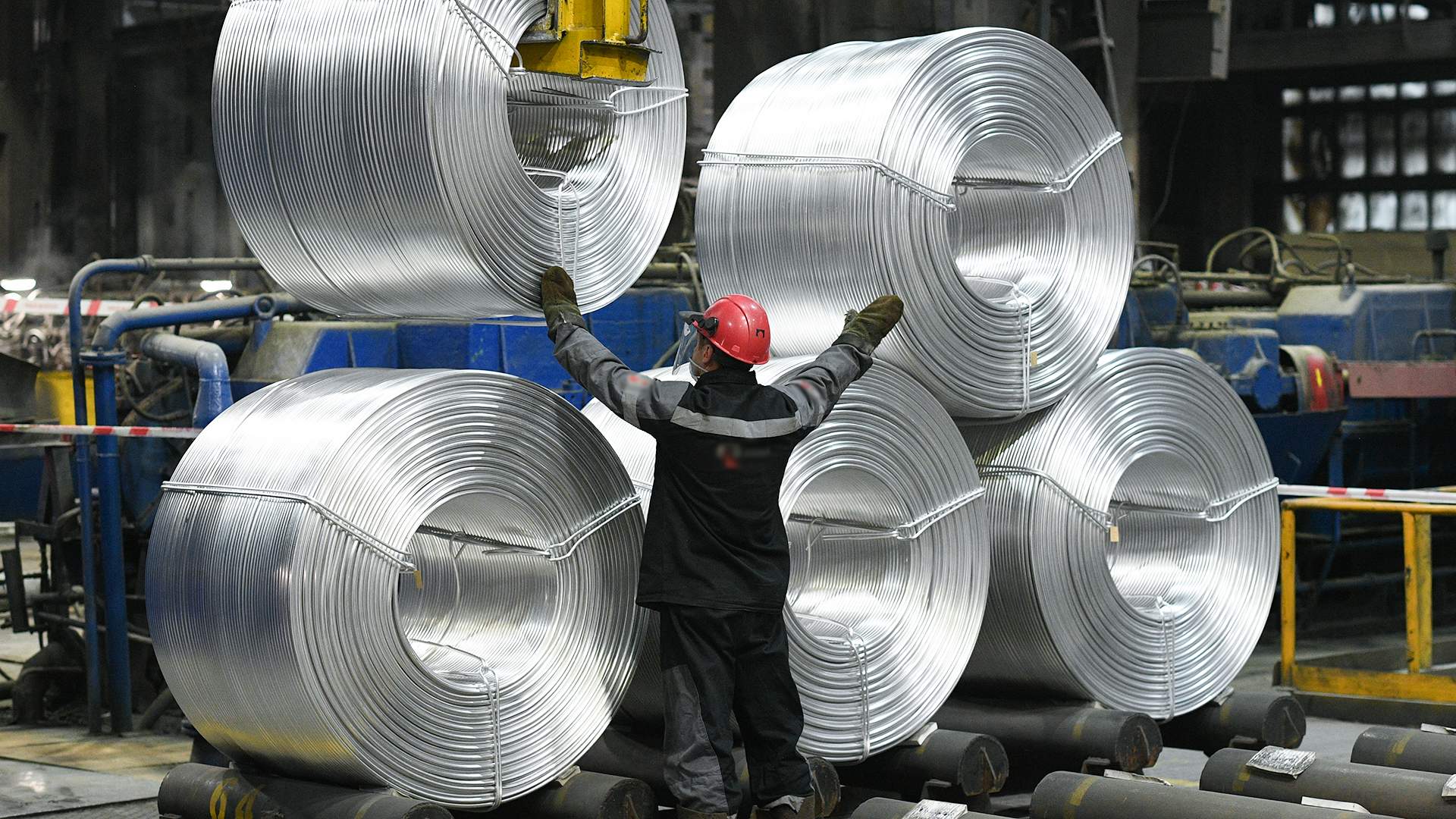Now profitable: aluminum exports to South Korea increased

At the end of October, South Korea imported $96.5 million worth of Russian aluminum. Izvestia studied how the increase in aluminum exports to South Korea will affect the Russian metallurgical market.
Where the demand comes from
In total, from January to the end of October, the volume of supplies in monetary terms amounted to $700.5 million. This is almost as much as for the whole of last year ($700.6 million). From 2016 to 2023, annual sales did not exceed $450 million, with Russia being the third most important aluminum exporter to South Korea after China ($1.5 billion) and Australia ($980 million). It is followed by the United States ($664 million).
According to the Russian Aluminum Association, the share of Russian metal in the structure of aluminum imports to South Korea has exceeded 20%, up from 8% in 2021.
South Korea imports Russian aluminum in unprocessed form due to the location of large aluminum sheet production facilities in the territory, Hasan Ramazanov, an expert at the Russia-OECD Center of the Presidential Academy, told Izvestia. Thus, according to Statista, more than 1 million metric tons of aluminum sheets were produced in South Korea in 2023.
- The main consumers of aluminum in Korea are the electronics industry and the automotive industry. Strengthening demand for aluminum from Russia by third countries, including South Korea, has a positive impact on Russian production of this metal," Ramazanov said.
South Korea supplies the world market with just under half of all new ships, and aluminum (both on its own and as part of alloys) is necessary for the industry, said Olga Orlova, head of the "Industry" direction at the Institute of Oil and Gas Technologies.
According to Ilya Makarov, Director of the Corporate Ratings Group at ACRA, aluminum is in demand in South Korea, including for the manufacture of aluminum containers (one of the most environmentally friendly types of packaging), aircraft production and building structures.
Russian aluminum is primarily a product with a low carbon footprint, according to Irina Kazovskaya, chairwoman of the Aluminum Association. "Thus, Russian products help export-oriented South Korea to maintain the competitiveness of its products in the global market, particularly in the European market," the expert says.
In favor of diversification
During 2024, aluminum prices on global exchanges fluctuate significantly. Price peaks occurred in April and June. Significant price drawdowns were in February and March, then in August and early September. Since October, prices have been kept at stable levels around $2.6 thousand per ton (last fall - $2.2 thousand). And since the beginning of the year, according to Sber CIB data, the overall growth in aluminum prices has been 6% (similar dynamics was shown by copper - +10%).
Thus, in the absence of sharp fluctuations, aluminum trading has become profitable again, and Russian companies are looking for sales markets. These searches are explained not only by the desire to diversify the business, believes Ekaterina Kosareva, managing partner of the analytical agency "VMT Consult".
- Stable income from foreign economic activity will protect companies from a drop in profitability due to tougher taxation in 2025, and the absence of sanctions promotes sales," the expert believes.
From 2025, Russian metallurgists will face additional tax costs. Thus, companies on the general system of taxation will start paying 25% of profit tax instead of 20%. At the same time, the growth of MET rates will not practically affect the aluminum industry, as MET rates have been raised for iron ore, gold, diamonds, coal, etc. Consequently, the rising tax costs can be characterized as moderate. According to analysts at Sber CIB, net profit will fall by only 7% due to these costs.
Overcoming challenges
The aluminum industry after 2022 has undergone a difficult phase of production reorientation as far as raw materials are concerned. In particular, alumina production stopped at the company's own plants in Nikolaev (Ukraine) and Australia (from where 9% of all alumina was sourced), while the US-based Alcoa stopped supplying alumina and bauxite.
Russia increased its purchases of raw materials from China, India and Kazakhstan, and announced an investment of 400 billion rubles in the construction of a new alumina production facility in the Leningrad region.
- The surge in demand triggered an increase in the price of alumina, which increased costs. Dependence on imports has worsened in recent weeks as the ruble has weakened to above 100 rubles per dollar (to an average of 108 rubles) - so profit growth would be lower than expected. And the increase in exports is designed to offset these risks and earn extra money," she says.
Tangible state support for the sector
For a long time it was unprofitable to sell aluminum to foreign markets. Following the decline in prices for American and Chinese aluminum, Russian aluminum also became cheaper. Export duties ate up some of the profits, and Russian metallurgists switched to supplying the domestic market. Machine-building and construction industries became the most active consumers of aluminum.
At the same time, as Olga Orlova notes, domestic metallurgists are steadily supplying the domestic market, including due to high duties on metals from China (in particular, on galvanized steel).
Rusal, the largest aluminum supplier, announced an increase in normalized profit to $620 million in the first half of 2024 compared to 2023 ($527 million for the same period in 2023).
The expert pointed out that in 2025 the government's decision to abolish export duties will come into effect. "This will make foreign trade interesting for Russian companies, and the companies themselves - attractive to investors," Orlova said confidently.
The Ministry of Industry and Trade did not respond to Izvestia's inquiry about the nature and significance of the growth in aluminum foreign trade volumes.
Переведено сервисом «Яндекс Переводчик»






